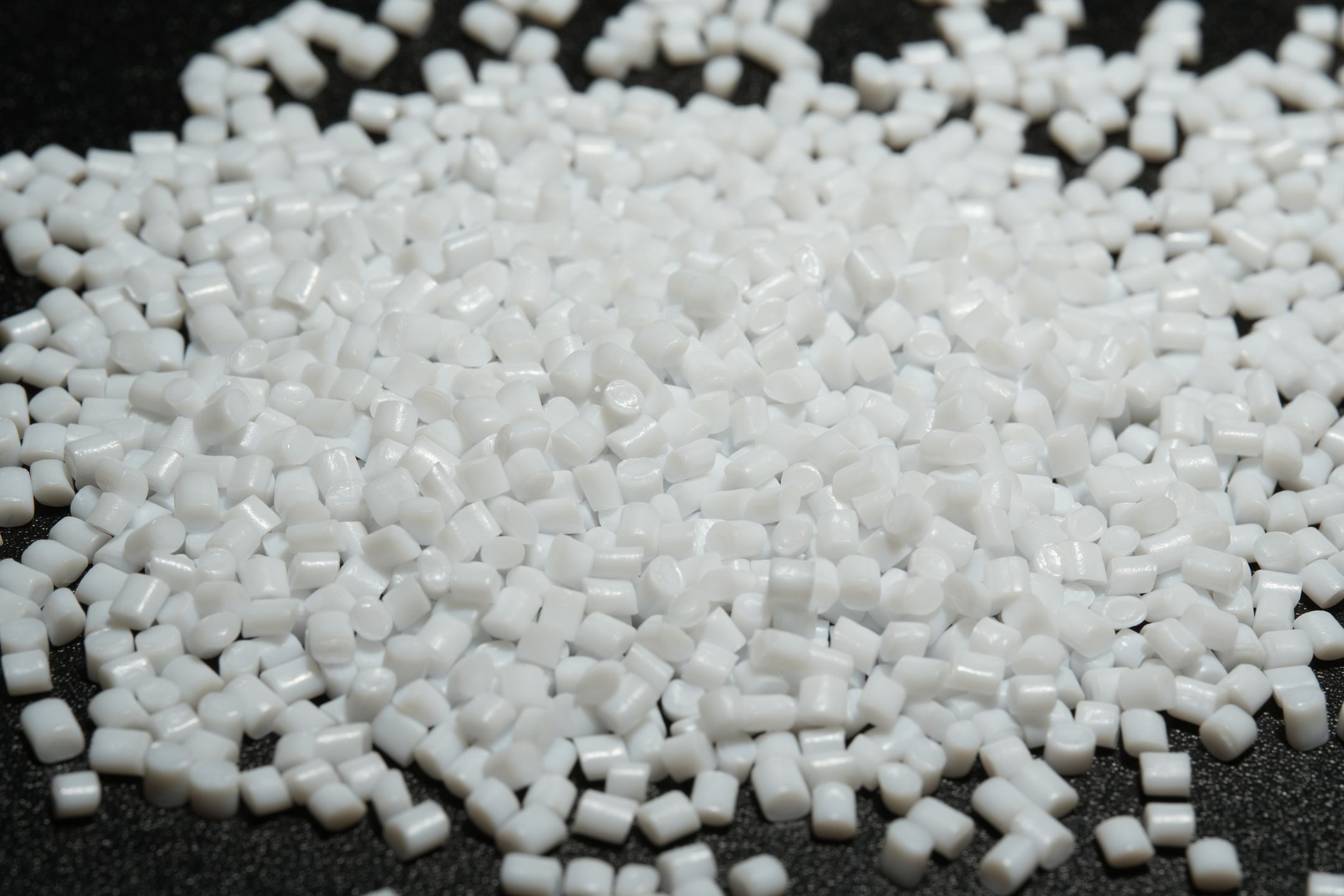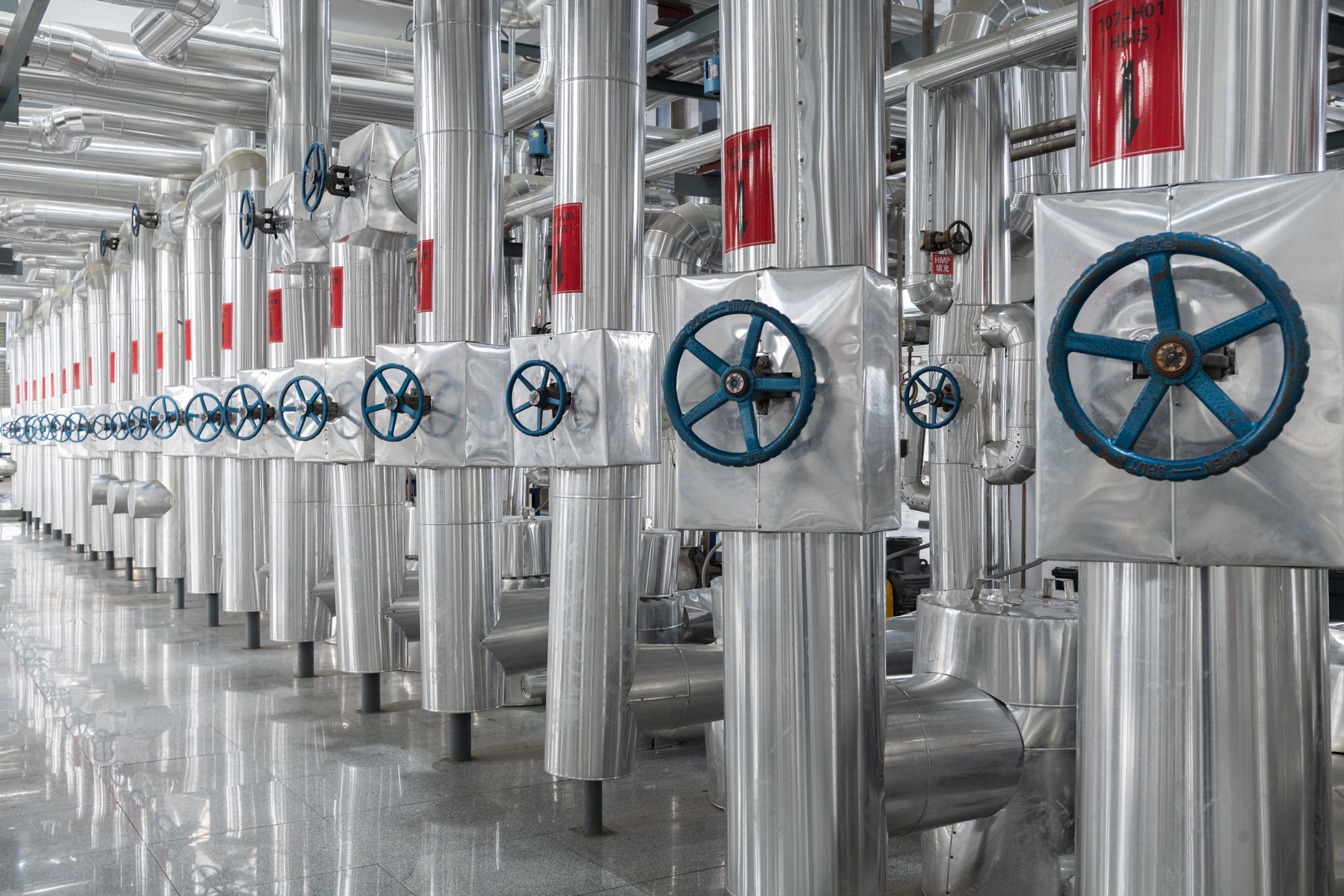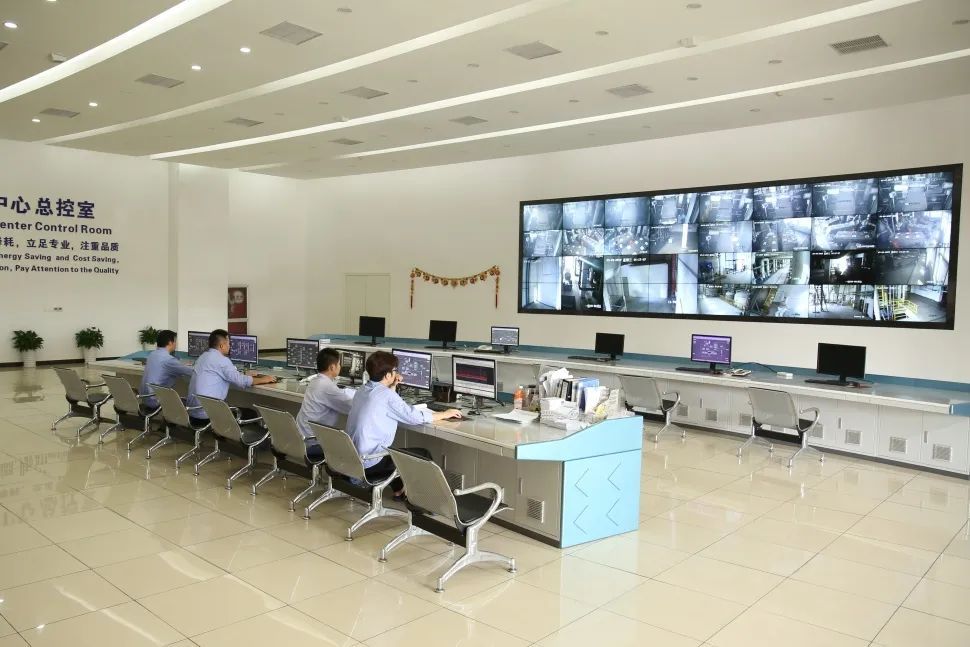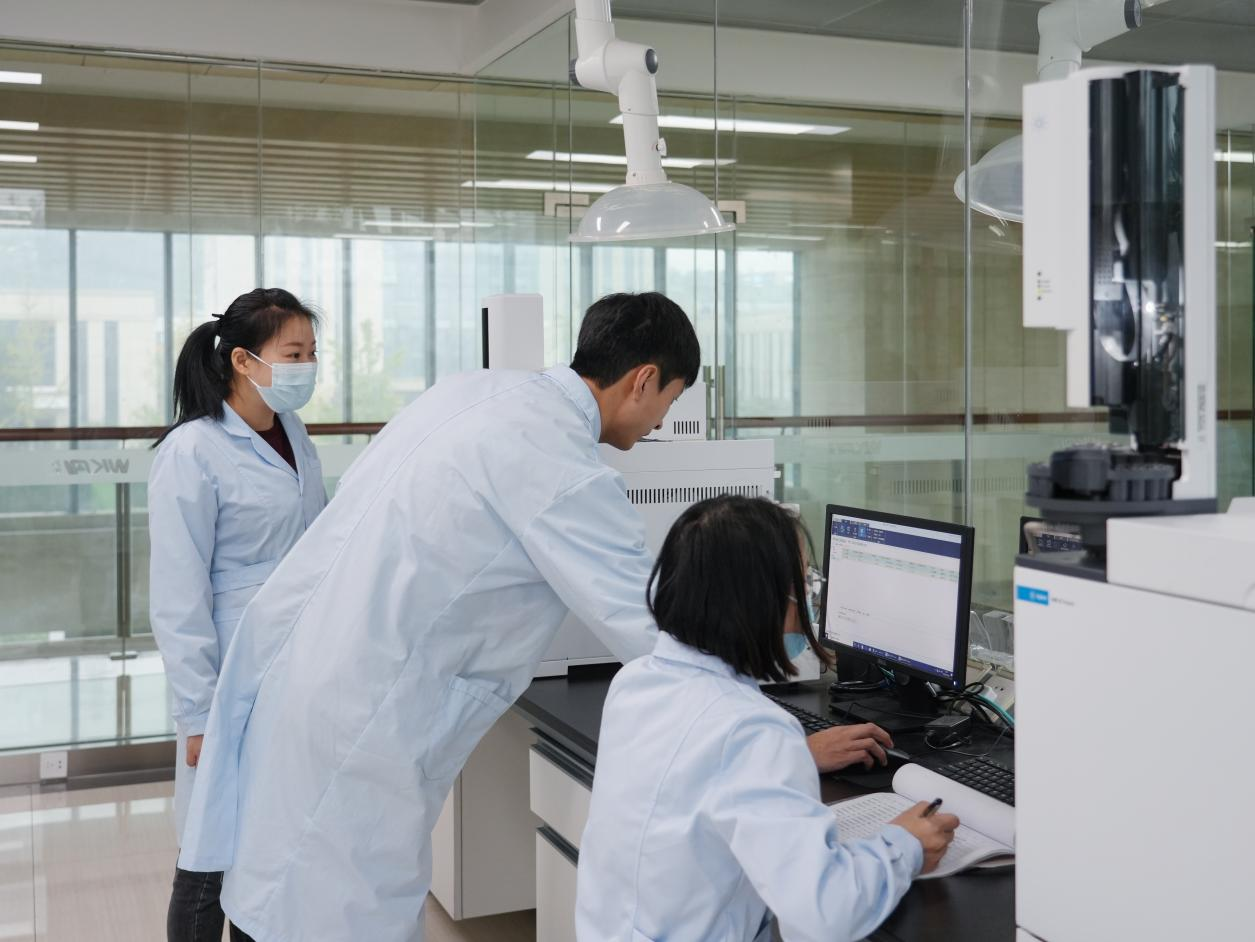
Wankai PET Resin Production Revealed: A Dual Focus on Digitalization and Sustainability
PET Chip Production: The Precise Transformation from Liquid to Solid
The production of bottle-grade PET involves a highly precise process that combines chemical reactions with strict control of physical conditions. Liquid raw materials are carefully transformed into solid form through a series of precise steps, ensuring the final product’s high quality and stability.
The raw materials—powdered purified terephthalic acid (PTA), liquid ethylene glycol (MEG), additives, and catalysts—are mixed in specific proportions to create a slurry. Specialized mixing equipment ensures an even blend, forming a stable suspension. The slurry then undergoes esterification and polycondensation under tightly controlled temperature, pressure, and reaction time. This chemical reaction converts the raw materials into a high-temperature polyester melt, signaling the initial transition from liquid to solid.
Once the polyester melt reaches the desired properties, it is extruded through a molding head to form long strips. These strips are cooled using saline mist spray and solidified into pellets. To guarantee the pellets meet the required performance standards, they undergo solid-state polycondensation (SSP), increasing the molecular weight and ensuring the strength and stability needed for bottle-grade PET.
Cutting-Edge Equipment and Innovations: Elevating PET Stability to New Heights
At the early stages of Wankai's establishment, the stability of bottle-grade PET chips was a critical factor in determining whether the company could partner with internationally renowned beverage brands. The remarkable stability of Wankai brand PET resin is a result of the continuous upgrades in production equipment and the ongoing technological innovations by its research team.
Since entering the bottle-grade PET chip production industry, Wankai has actively adopted leading international devices. The company implemented continuous polymerization equipment from China Kunlun Engineering Company and a solid-state viscosity-enhancement patented device designed by Switzerland’s Polymetrix.
The equipment provided by Kunlun Engineering enables long-duration continuous PET production, reducing downtime and dramatically increasing both efficiency and overall output. Polymetrix's patented solid-state viscosity-enhancement device optimizes the length and structure of polyester molecules, boosting the molecular weight of PET resin in an environmentally friendly and efficient manner. This innovation gives Wankai’s PET chips superior strength, toughness, heat resistance, while maintaining excellent transparency and color stability.
In addition to core equipment, Wankai has introduced high-precision electrical control systems, instruments, and valves into its production process, ensuring precise control at every stage. The company also holds proprietary technologies, including IPA esterification, low-temperature polymerization equipment, and energy-saving insulation technologies, which collectively enhance product quality and stability.
Revolutionizing PET Production: How 5G Technology Powers Smart Upgrades
Behind the efficient production process, Wankai New Materials leverages Honeywell's DSC central control system alongside 5G technology, industrial IoT, and digital twin applications, Wanke has successfully implemented a smart workshop, greatly enhancing both the safety and efficiency of PET resin bottle grade production.
The digital system monitors product and byproduct quantities, such as the esterification rate, a key indicator of production progress that impacts the mechanical strength, thermal stability, and transparency of the PET chips. Maintaining an esterification rate above 95% is crucial for high-quality PET production.
Real-time monitoring of byproducts like EG and steam allows the system to accurately calculate the esterification rate and adjust production parameters, reducing resource consumption and ensuring consistent product quality. This automation minimizes manual analysis and reagent use, preventing waste and quality fluctuations, and improving the final PET resin's quality and price competitiveness.
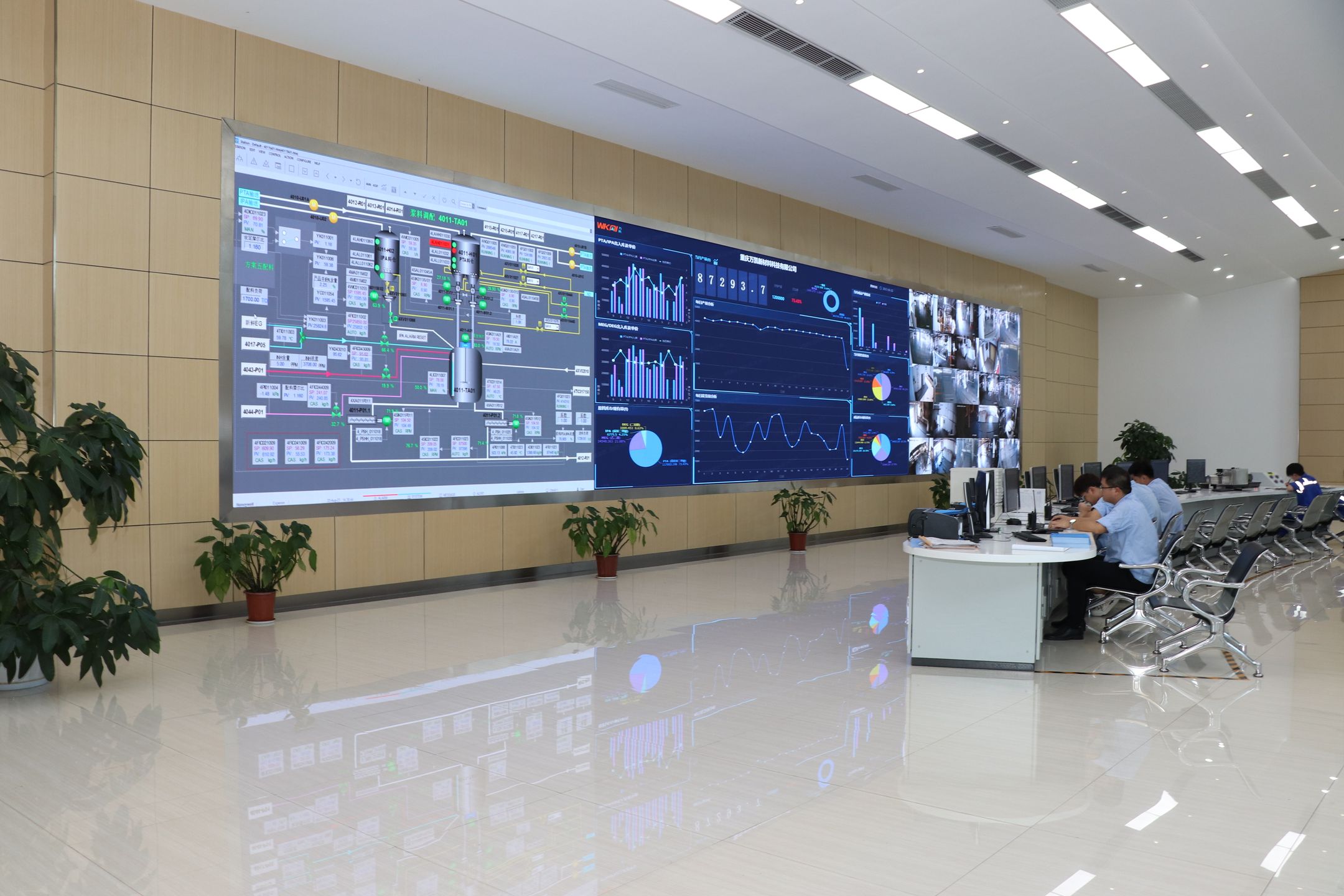
The effective integration of digital technology is demonstrated in the innovative use of unmanned intelligent inspections. By combining drones and gas sensor technology, Wanke has achieved comprehensive monitoring of the production site. Operators can precisely control drones to monitor VOC gas concentration changes and oversee tank area equipment. This smart inspection system promptly detects potential gas leaks or equipment malfunctions, enabling rapid responses to minimize safety risks. Furthermore, the integration of digital systems enhances gas pollution control, ensuring environmental safety and compliance with sustainability goals.
Utilizing fast and stable 5G technology, Wankai achieves seamless transmission of real-time video to the DSC central control room, ensuring precise monitoring of all areas within the production facility. This system improves production safety, response time, and operational efficiency by providing real-time data for immediate issue resolution. The high bandwidth and low latency of 5G further optimize production management and resource allocation.
Uncompromising Quality Control: Ensuring PET Excellence at Every Stage
Wankai New Materials has always adhered to a commitment to excellence in the production of polyethylene terephthalate (PET), guided by principles of fairness, scientific rigor, efficiency, and precision in its quality management. The company fully implements the ISO 9001 quality management system, ensuring that every stage of production meets international standards.
Since 2014, Wankai’s Quality Testing Center has been accredited by the China National Accreditation Service for Conformity Assessment (CNAS). The center is equipped with over 128 advanced testing instruments from renowned manufacturers in the United States and Switzerland. These sophisticated tools support key quality control processes, including raw material acceptance, water quality testing, production monitoring, and finished product inspections. With this robust infrastructure, Wankai has made notable progress in areas such as improving the purity and transparency of PET resin, enhancing the stability of PETG monomer recovery rates, and refining the color quality of finished products.
The company conducts an annual comprehensive review of its quality management system to ensure it evolves in response to the changing market environment. To foster a culture of quality innovation, Wankai also promotes Quality Control Circle (QCC) activities, encouraging creative thinking, knowledge sharing, and collaboration among employees. Through these efforts, Wankai continues to drive improvements, ensuring that its products consistently meet the highest standards of quality.
Conclusion
Wankai New Materials Co., Ltd. is at the forefront of digital transformation and sustainable development in the manufacturing industry. By leveraging cutting-edge equipment, smart technologies, and rigorous quality control systems, Wankai consistently sets new industry benchmarks, producing high-quality PET resin that meets the dynamic needs of the global market..

